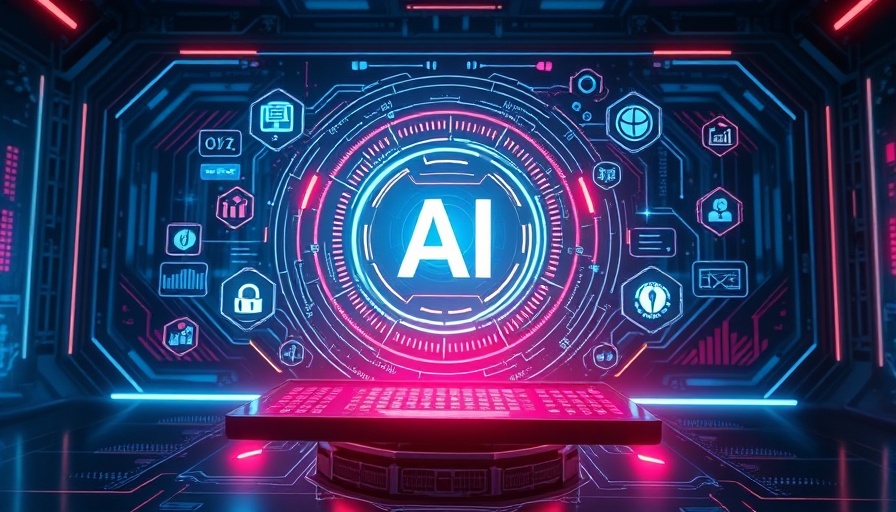
AI's Role in Marketing Evolution
As we venture into 2025, the marketing landscape is poised for a transformative leap driven by artificial intelligence (AI). HubSpot's recent report underlines a pivotal shift in how marketers redefine success. While traditional metrics focused on traffic, the emphasis is now on capturing and sustaining attention. This pivotal change is supported by the ever-evolving capabilities of AI, suggesting that the fusion of technology and creativity will define the future of marketing.
What’s Changing in 2025?
Marketing, as Kieran Flanagan, SVP of Marketing at HubSpot states, is shifting from merely scaling traffic to genuinely scaling attention. This change necessitates a new skill set for marketers—one in which AI will play a crucial role. The science of marketing is on the path to automation through AI, allowing marketers to focus more on the artistry of their craft. This double-edged sword is giving marketers both the tools and the opportunity to innovate.
B2C Strategies Harnessing AI
The HubSpot report details five essential B2C marketing strategies for 2025, emphasizing the importance of user-generated content and brand values, but notably, two key strategies highlight AI leverage. Firstly, converting a single piece of high-value content, like a blog post, into a multi-faceted promotional campaign is no longer a task reserved solely for human creativity.
Imagine spending hours crafting a compelling blog. With AI at your disposal, that one post can morph into captivating snippets for social media, informative email campaigns, engaging audio versions, and even visual content like infographics or videos. This versatility not only amplifies reach but also optimizes the content lifecycle across various platforms.
The Power of AI in Analytics
The integration of AI into the reporting and analytics aspect of marketing promises unprecedented efficiency. Utilizing AI-powered tools to calculate the ROI of marketing campaigns shifts the focus from guesswork to precise insights. By aggregating data from an array of sources—including CRM systems, social media channels, and Google Analytics—marketers can gain an instant overview of which channels are driving conversions. This analytical capability is invaluable in refining strategies and optimizing budgets.
Addressing Concerns and Maximizing Benefits
Despite the opportunities AI presents, there remains a common misconception that machines can fully replace the creativity of human marketers. While AI tools are revolutionary in enhancing efficiency, the essence of storytelling, brand voice, and emotional connection still relies on human insight. Marketers should view AI as a collaborative partner—enhancing human skills rather than replacing them.
Furthermore, as AI automates data collection and analysis, the traditional manual input acumen may fade. It’s essential to address these challenges by upskilling marketing teams to blend creativity with technology effectively.
Looking Ahead: Future Trends in AI Marketing
The digital marketing landscape is becoming increasingly intricate, and trends such as personalization and omnichannel strategies are rising to the forefront. By 2025, the integration of AI in these areas will enable marketers to offer tailored experiences at scale, resulting in heightened customer engagement and loyalty. Marketers should begin preparing now by evaluating their current tools and strategies, looking for opportunities to integrate AI to stay ahead of the curve.
The Call to Action
In closing, embracing AI is not just a trend but a necessity for marketers looking to thrive in the evolving landscape of 2025. By leveraging AI’s capabilities now, you can enhance your strategies and set your brand up for future success. It’s time to evaluate your tools and readiness to step confidently into the future of marketing. Explore the latest strategies and prepare to revolutionize your marketing approach today!
 Add Row
Add Row  Add
Add 




Write A Comment